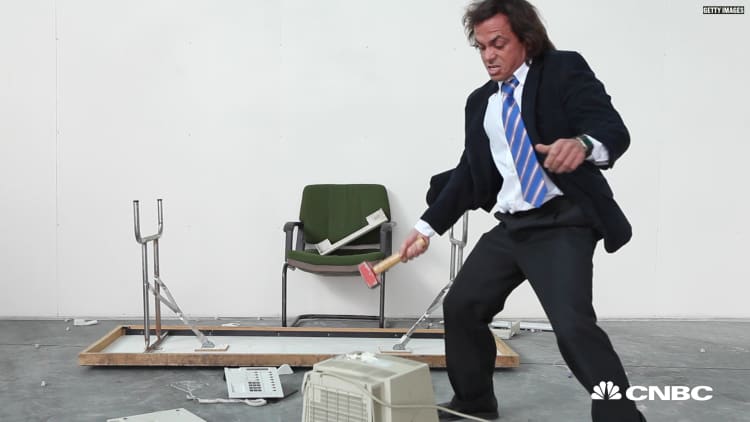Bestselling author Malcolm Gladwell thinks companies need to pay more attention to one of today's biggest workplace issues: productivity. If he were in charge of a big company, he tells organizational psychologist Adam Grant in the latest TED podcast episode of "WorkLife with Adam Grant," he would institute policies that would make workers happier — and more efficient.
"I'm not sure whether my company loses money," Gladwell admits, referring to his hypothetical business. But, at the very least, it would be "a reasonably productive place."
Here are the three changes Gladwell says he would make as a CEO.
Eliminate strict work hours
Gladwell, 54, says he learned a lot about work-life balance from his mom and would apply lessons he learned from her.
"My mother had a very unique perspective on work," Gladwell says. "It never occurred to her that the point of work was to make money. She had a whole list of things that came first." So, whenever she started a new job, the first thing she did was go to her boss and say, "Look, I know I could work full-time, but it's pointless. If you let me work half-time, I could get just as much work done and I'm going to be happier and you're going to be happier."
To Gladwell's surprise, his mom's negotiations worked, and her superiors were pleased with her results.
"Much of what people can do — if they are happy and well-rested — can be accomplished in some fraction of the time they currently spend on the job," Gladwell says.

Encourage workers to exercise
When Gladwell visited Amsterdam, he says, he noticed that people bike to work around the city because it's simply seen as normal. "It works because everyone is doing it. All of our problems with cycling to work is that we don't want to be the only person on the road cycling, but once everyone's cycling, it's fine," he says.
Gladwell grew up in Canada in the 1970s and '80s, when, he says, it tried to encourage citizens to emulate the healthy and active Scandinavians. But Gladwell's home country is no slouch, either: for the past three years, Canada has remained the country with the best quality of life, according to the U.S. News & World Report 2018 Best Countries list.
At his hypothetical company, Gladwell says he would "take people's physical health far more seriously" than most places do today.
"I just think that people are much happier when they get the chance to regularly exercise," he says. "Sadly most people's schedules don't allow for that."

Create small, personal teams
In his book "The Tipping Point," Gladwell wrote about the benefits of keeping groups under 150 people. For that reason, as a CEO, he would "try and keep the sections of the company small and independent, under 150 if possible," Gladwell says.
He argues that the ideal size of a human group is somewhere between 1 to 150 because anything more than that becomes impersonal.
"I just think people enjoy themselves much more when they know everyone that they are working with," he says. "And when there is that extra element, when there is that social bond in addition to kind of formal things keep people together, that's just much more powerful."
Like this story? Like CNBC Make It on Facebook!
Don't miss:


